Globalization, the State and the Individual
Indexed: Copernicus Value (ICV-70.09), CEJSH.
PRINT ISSN 2367-4555
ELECTRONIC ISSN 2367-9107
Globalization, the State and the Individual is an open access quarterly scientific journal, publishing research and reviewing articles, together with case studies in the sub-disciplines relating to the broad economics and soclial, law, psychology science.
SCIENTIFIC BOARD
Anna Nedyalkova, Prof. Hab. Dr. Sc, Varna Free University, Bulgaria (Scientific Editor)
Tomasz Wołowiec, Prof. Hab. PhD, University of Economics and Innovation in Lublin, Poland (First Deputy Scientific Editor)
Galya Gercheva, Prof. Hab. Dr. Sc, Varna Free University, Bulgaria
Pavel Pavlov, Prof. Hab. PhD, Varna Free University, Bulgaria
Zhibek Khussainova — candidate of economic sciences, professor, Dean of the faculty of Economics of academician Y.A. Buketov Karaganda State University
Mirosław J. Jarosz, Prof. Hab. PhD, Rector, University of Economics and Innovation in Lublin, Poland
Sławomira Białobłocka, PhD, Higher School of National Economy in Kutno, Poland
Aleksander A. Stiepanov, Prof. Hab. PhD, Moscow State Academy of Business Administration, Russia
Tatiana Varcholova, Prof. Hab. PhD, dr h.c. UCEU in Skalica, Slovakia
Krzysztof Czyrka, Prof. Hab. PhD, The Jacob of Paradies University in Gorzow Wielkopolski, Poland
Vladimir Modrak, Prof. Hab. PhD, Ing., Technical University in Kosice, Slovakia
Michal Varchola, Prof. PhD, Ing., President of IAS of Michal Baludansky, Slovakia
Lev Isakovicz Uszvicki, Prof. Hab. PhD, North-Caucasian Federal University, Russia
Adam Muszyński, Prof. Hab. PhD, Centrum Edukacji i Doradztwa „MADA”, Glogow, Poland
Hamenova Bakytgul Kayrzhanovna, Prof. PhD, Atyrau State University, Kirgistan
Zhusupov Askar Eltaevich, Prof. PhD, Pedagogical State University, Kirgistan
Margarita Savina, Prof. Hab. PhD, University of Pedagogical in Moscow, Russia
Joanna Rogozińska-Mitrut, Prof. Hab. PhD, State Higher Vocational School in Gorzów Wielkopolski, Poland
Wiktor Cwynar, PhD, University of Economics and Innovation in Lublin, Poland
Julia Ragulina, Prof. Hab. PhD, Moscow Academy of Predprinimatelstva Pri Pravitelstve in Moscow, Russia
Jacek Oleksiejuk, PhD, The Józef Piłsudski University of Physical Education in Warsaw Poland
Aigars Andersons, Prof. PhD, Vidzemes University of Applied Sciences, Latvia
Petr Hajek, Prof. PhD, Bohemia University, Czech Republic
Hartmut Marhold, Prof. PhD, Freies Universitat de Berlin, Germany
Erico Wulf Betancourt, Prof. PhD, La Serena University, Chile
Alina Yakymchuk Dr. hab. Professor of Public of National University of Water and Enviromental Engineering Rivne, Ukraina
Ryszard Piasecki, Prof. Hab. PhD, Secretary General CIFE Nicea-Berlin
Janusz Soboń, Prof. Hab. PhD, State Higher Vocational School in Gorzów Wielkopolski, Poland (Honorary Chairman)
MANAGING EDITORS / COMPOSITION, LAYOUT AND COVER DESIGNER
Marcin Cywiński, Dariusz Soboń
WYDAWNICTWO
Mazowieckie Centrum Poligrafii
ul. M. Ciurlionisa 4
05-270 Marki
tel./fax 22 889 00 60
e-mail: kontakt@c-p.com.pl
ISSN 2367-4555
CLICK HERE TO DOWNLOAD OFFICIAL ARTICLE TEMPLATE (NEWEST 2018 VERSION)
CLICK HERE TO DOWNLOAD ADDITIONAL PUBLISHING GUIDELINES
CLICK HERE TO DOWNLOAD AUTHOR’S DECLARATION
PLEASE SUBMIT THE ARTICLES DIRECTLY TO THIS E-MAIL ADDRESS: marcincyw@wp.pl
INFORMATION FOR AUTHORS
Articles published in the Globalization, the State and the Individual examines widely understood topics in the study of management, where priority is given to publications presenting research results or relating to current problems of academic managerial issues and modern management concepts. The stamp of approval for the journal’s contents is done by the Scientific Council.
Authors are asked to use the following rules in publishing articles:
1. The main document that is prepared using the Article Template which is in accordance with the guidelines given in the Additional Publication Guidelines, including:
– Name(s) and surname of the author(s), their affiliation,
– Author’s Title in Russian and English,
– An abstract (max. 100 words) in Russian and English,
– Key words in Russian and English,
– Contents of the article in Russian or English,
– Captions of figures/tables in Russian and English,
– A bibliography.
2. Information about the author (authors):
– Name(s) and surname of the author(s),
– Current place of work,
– Position held,
– Nationality,
– A brief biographical note indicating the area of academic interest,
– An e-mail address, phone number, address for correspondence.
To facilitate the work of both the authors and editors, an Article Template has been prepared which should be used while writing the article. It includes example content based on the required editorial guidelines. Insert the material in the appropriate places while maintaining the format and style shown in the template.
PLEASE SUBMIT THE ARTICLES DIRECTLY TO THIS E-MAIL ADDRESS: marcincyw@wp.pl
NOTE!
According to the guidelines of the MNiSW (Ministry of Science and Higher Education), Globalization, the State and the Individual editors expect disclosure of information by issuers who have contributed to the publication (contribution of knowledge, material, financial, etc.). Ghostwriting* and guest authorship** are deemed as misconduct. Any detected cases will be exposed, including notification to the relevant agents (institutions employing the authors, societies, associations, academic editors, etc.). In this same notice, the journal’s editors declare that all forms of misconduct, particularly breaking and violations of rules of ethics in force in science and research will be documented.
In order to ensure transparency and disclosure of the data sent, the authors are requested to sign and return this given declaration to the Editorial Board correspondence address. This statement includes a declaration of consent for the publication of full articles free of charge on the website of the Globalization, the State and the Individual, and in the databases of academic journals with whom the journal’s editors cooperate. These are necessary prerequisites for publishing an article in the Scientific Quarterly.
* Ghostwriting occurs when someone has made a substantial contribution to a publication, without disclosing his participation as one of the authors and without mentioning his role in the acknowledgments of the publication.
** Guest authorship (honorary authorship), occurs when a person who is declared as an author has a minimal role or hasn’t taken any part in contributing to the publication, yet they are mentioned as the author/co-authored of the publication.
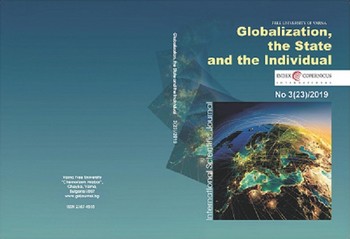
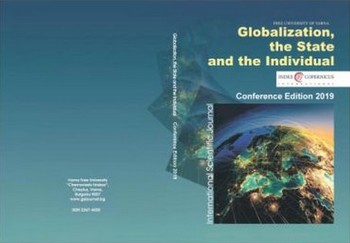
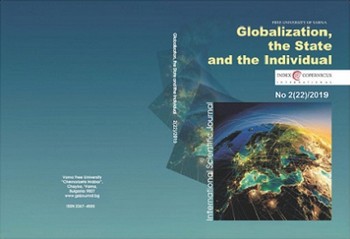
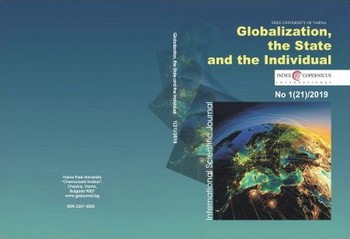
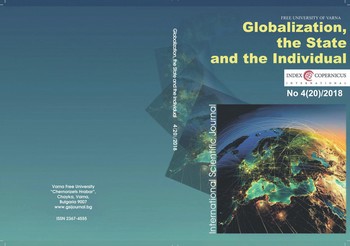
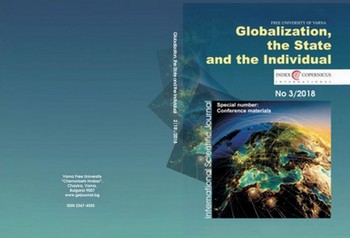
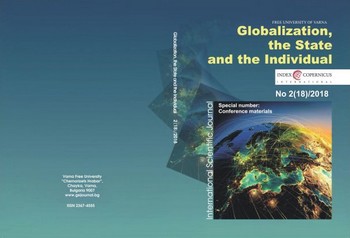
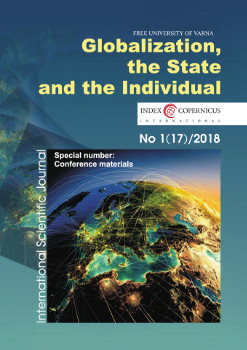
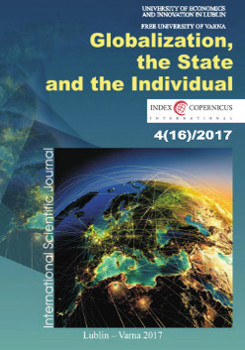
Agnieszka Kos THEORETICAL ASPECTS OF TERRORISM
Joanna Piotrowicz JUVENILE DELIQUENCY AND ROLE OF CORRECTIONAL CENTERS
Маргэрита Савина, Александер Аннаярович Степанов ВОПРОСЫ ТЕОРИИ УПРАВЛЕНИЯ ИННОВАЦИОННЫМ РАЗВИТИЕМ
Janusz Gudowski AGRARIAN TRANSFORMATION IN POLAND. POST-ACCESSION EXPERIENCE UNDER EU CONDITIONS
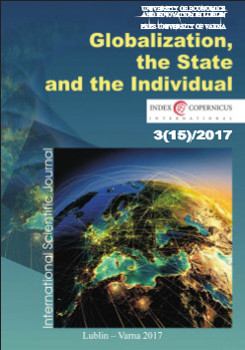
Дарии˘ Собонь ВЛИЯНИЕ ЛЬГОТ И НАЛОГОВЫХ ОСВОБОЖДЕНИИ˘ НА ЭКОНОМИЧЕСКИЕ ПРОЦЕССЫ
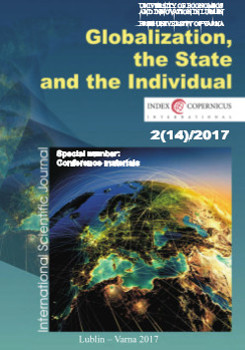
Petar Georgiev Hristov SON THE ACTUAL STATUS OF THE “RIGHT FOR SECURITY” PROBLEM
Stefka Naumova RIGHT TO SECURITY IN THE CONTEXT OF THE THEORY OF SOCIAL DEVIANCE
Cherneva Boyka Ivaylova LEGAL SECURITY AS A PRINCIPLE IN LAWMAKING
Evgeni Petrov Manev, Diana Ivanova Ilieva, Dessislava Pancheva Stoeva SECURITY ZONES
Michev Stefan Ivanov, Stoeva Desislava Pancheva THE NEW ILLUSIONS OF SECURITY
Maria Neykova IS BULGARIA’S LEGISLATION UP TO THE MARK TO THE CONTEMPORARY SECURITY ENVIRONMENT
Naoumov Svetoslav LEGAL-PHILOSOPHICAL PARAMETERS OF THE CONNECTION BETWEEN JUSTICE AND SECURITY
Salkova Ekaterina, Roychev Yanko HUMAN RIGHTS IN THE CONTEXT OF COUNTER-TERRORISM
Tarkalanov Yuriy, Beleliev Dimitar METHODOLOGY FOR EVALUATION OF ENERGY SECURITY
Maria Ivanova Radeva LEGAL ASPECTS OF THE HEALTH SECURITY IN THE REPUBLIC OF BULGARIA
Sabin Sabev SECURITY OF THE INFORMATION AND DELIVERIES UPON AWARD OF PUBLIC PROCUREMENTS
Kovacheva Galina Dimitrova THE SECURITY RIGHT OF JUVENILE DELINQUENTS
Tomasz Wołowiec LAX ASPECTS IN CASE OF A PROPERTY AS A SUBJECT OF TAXATION
Valentin Nedev ENSURING SECURITY OF PRE-LITIGATION PROCEEDINGS BODIES – FORENSIC ASPECTS
Hadzhiyski Deyan, Vasil Levski TRUST AS A PSYCHOLOGICAL FACTOR OF PERSONAL SECURITY
Olga I. Bykovets LEGAL REGULATION OF NON-FOOD PRODUCTION SAFETY IN UKRAINE
Ivan Ivanov NATIONAL SECURITY VS . SECURITY OF THE PERSON, ETHNIC PROFILING
Boryana Varbanova ANALYSIS OF THE SELECTION OF CADETS IN THE HIGHER MILITARY SCHOOLS
Mishkov Radoslav Raychev THE RIGHT TO SECURITY IN THE CASE OF A. AND OTHERS V. THE UNITED KINGDOM
Deliversky Jordan Georgiev ASSURING SECURITY OF MIGRANTS AND REFUGEES – BULGARIAN PERSPECTIVE
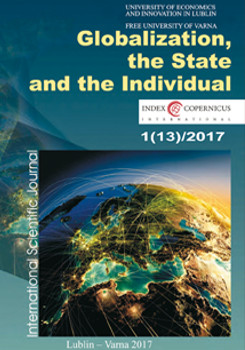
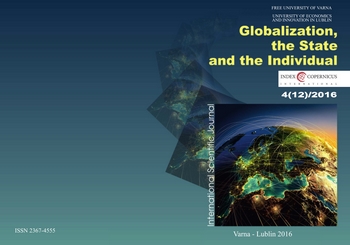
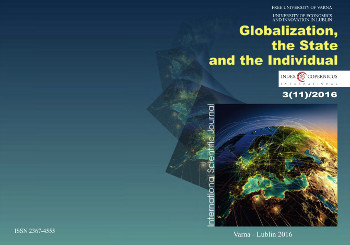
Tomasz Wołowiec THE AREA SYSTEMS OF REAL ESTATE TAXATION. SELECTED PROBLEMS AND WAYS OF REFORMING
Joanna Piotrowicz-Dębicka COMPUTER CRIME AND ITS PROSPECTS
Patel Geetaben Prabhuram GLOBAL OPERATIONAL STRATEGIES IN SERVICES OF INFORMATION TECHNOLOGY
Małgorzata Mazur MOBBING PHENOMENON IN TODAY’S ORGANIZATION
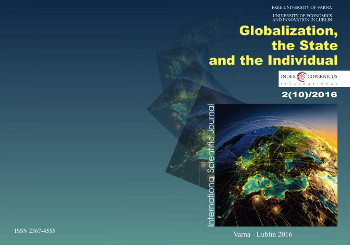
Agnieszka Kos, Ajit Velu CYBER TERRORISM AS THE EXEMPLIFICATION OF MEDIA TERRORISM
Małgorzata Stawicka, Dariusz Wosztyl PROFESIONAL ETHICS IN THE HEALTH CARE SYSTEM IN POLAND
Agnieszka Kos EUROPEAN OMBUDSMAN AS AN INSTITUTION COUNTERACTING THE IMPROPER ADMINISTRATION
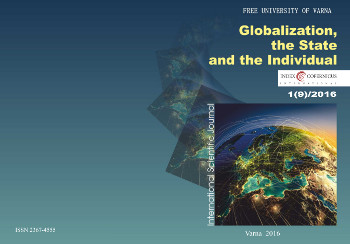
Agnieszka Kos EUROPEAN OMBUDSMAN AS AN INSTITUTION COUNTERACTING THE IMPROPER ADMINISTRATION
Radosław Nowak THE WAY OF DEFINING INNOVATION IN THE CONTEXT OF REGIONAL GOVERNANCE
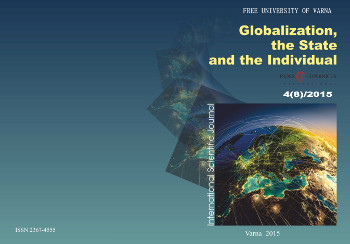
Artur Preisner THE PROMULGATION OF NORMATIVE ACTS –THE LEGAL BASIS AND PRACTICE
Joanna Braciak WARREN, BRANDEIS AND THE BIRTH OF THE RIGHT TO PRIVACY
Ryszard Balicki THE DEMOCRATIC DEFICIT IN THE EUROPEAN UNION
Piotr Lewandowski FREIGHT EXCHANGE AS EUROPEAN MARKET FOR TRANSPORT
Agnieszka Kos THE TOOLS OF SOCIAL IMPACT USED IN POLITICAL SOCIAL ENGINEERING
Wołowiec Tomasz, Janusz Soboń SOME PRACTICAL ISSUES OF PROPERTY TAX TRANSFORMATION
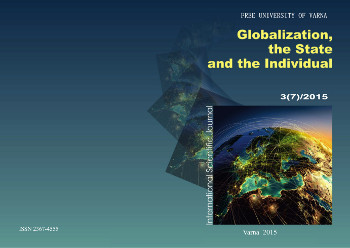
V.P. Agafonov, Nikolay V. Obolensky MANAGEMENT BY OBJECTIVES USAGE FEATURES AT SMALL BUSINESSES
Agnieszka Koryś AGRICULTURAL TAX IN SCOPE OF LEGAL REGULATIONS
Silviya Todorova PROBLEMS FACED DIFFERENTIATED INTEGRATION OF BULGARIAINTO THE SCHENGEN AREA
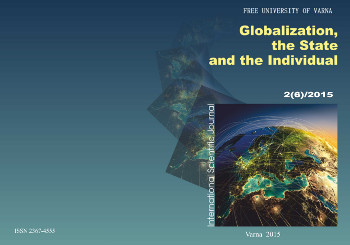
Anna Kaczmarek HUMAN RESOURCES AS AN ELEMENT OF COMPETITIVE POTENTIAL
Agnieszka Kos ELECTORAL ABSTENTION AND VOTING PREFERENCES
Adam Muszyński, Janusz Soboń, Janusz Gudowski THE EU INNOVATION POLICY
Pavel Pavlov, Tomasz Wołowiec SOME ISSUE OF PROPERTY TAXATION: LAW AND ECONOMICS ASSPECTS
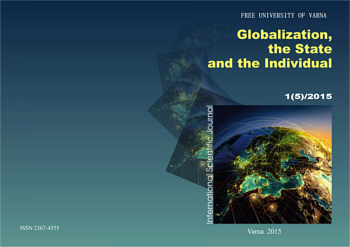
Agnieszka Kos THE SPECIFICITY OF ELECTORAL BEHAVIOR
Elżbieta Gąsiorowska, Janusz Soboń MANAGEMENT OF ORGANIZATIONAL CHANGES IN ENTERPRISES
Sławomira Białobłocka, Janusz Gudowski, Adam Muszyński ECONOMIC GLOBALIZATION AS SEEN TODAY
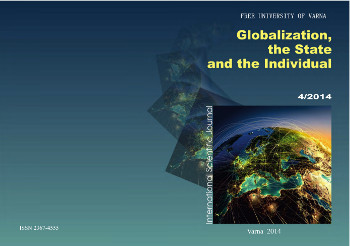
Anna Kaczmarek MEASUREMENT OF ENTERPRISE COMPETITIVENESS
Agnieszka Kos METHODS, TECHNIQUES AND IMPACT OF SOCIAL ENGINEERING
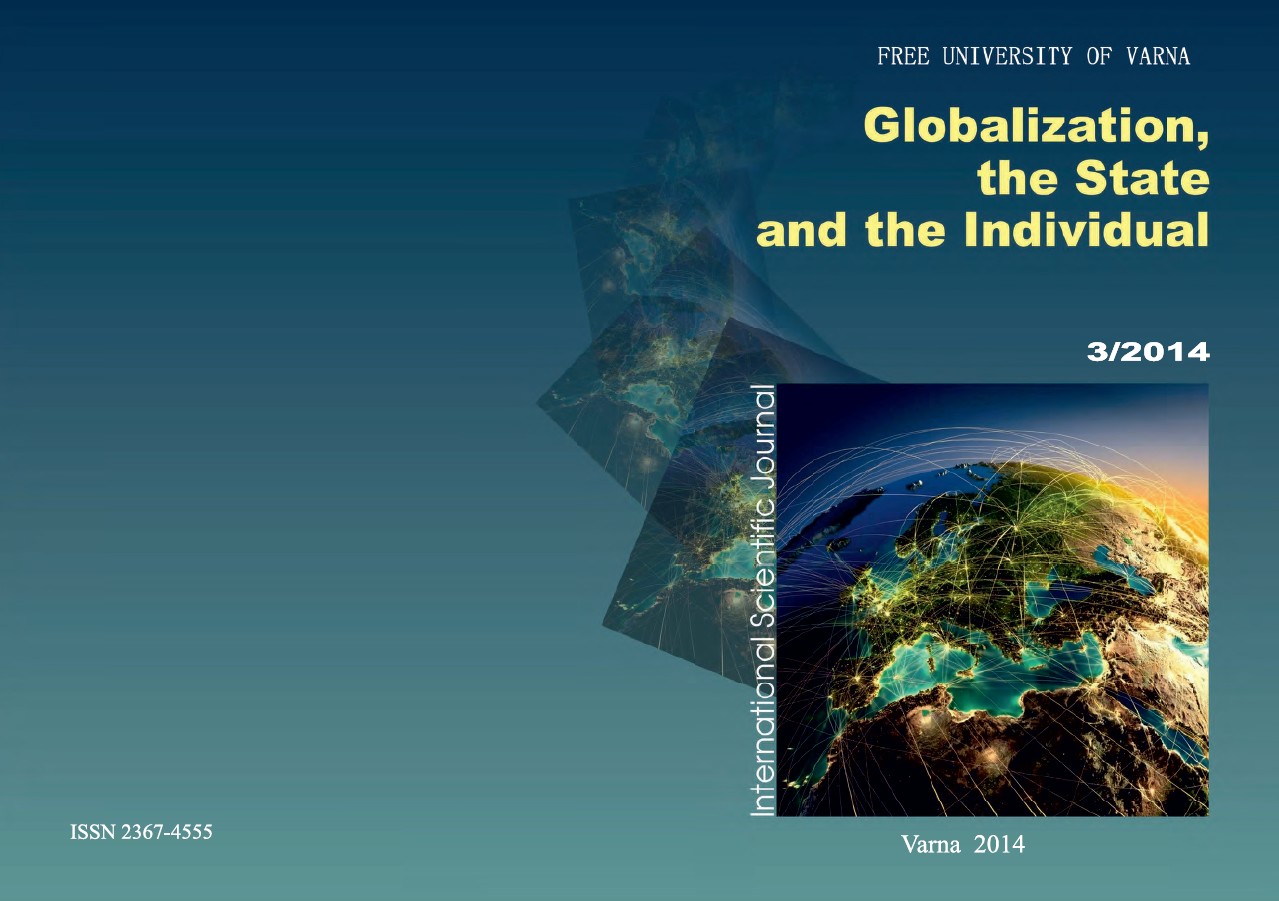
Adam Muszyński, Piotr Lewandowski BARRIERS TO THE KNOWLEDGE MANAGEMENT IN THE PUBLIC ORGANIZATIONS
Sławomira Białobłocka, Pavel Pavlov METHODOLOGY OF INTELLECTUAL CAPITAL MEASUREMENT
Anna Kaczmarek, Janusz Soboń CRITERIA FOR CLASSIFICATION AND TYPES OF COMPETITIVENESS
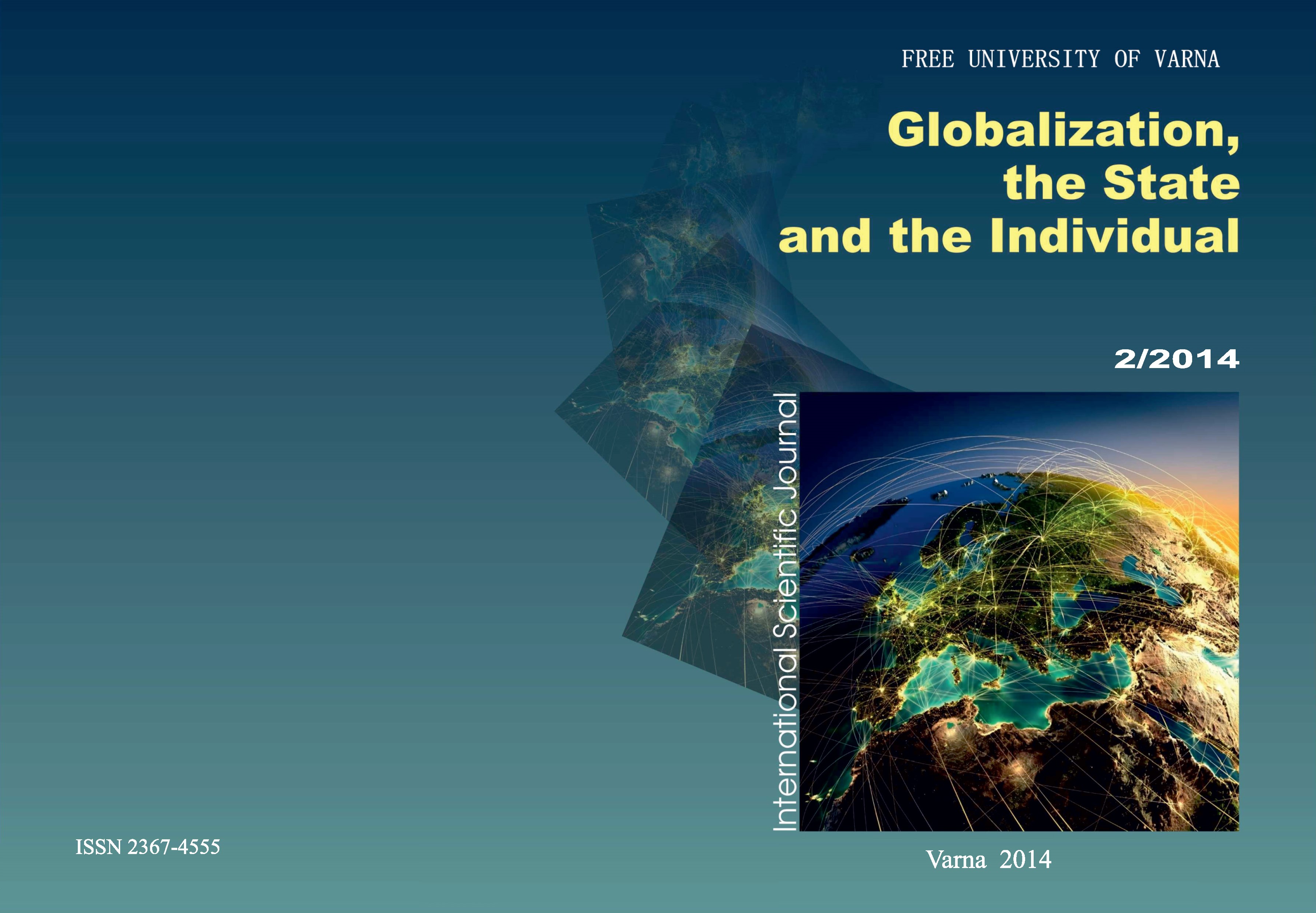
Joanna Jankowska, Urszula Strzałkowska CULTURAL, ETHICAL AND SOCIAL DIMENSIONSOF GLOBALIZATION
Mirosław Cienkowski, Dariusz Reśko CONTEMPORARY CONCEPTS OF HEALING BUSINESS ENTITY MANAGING PROCESS
Galya Gercheva, Adam Muszyński MULTINATIONAL CORPORATION IN GLOBAL ECONOMY(SELECTED PROBLEMS)
Magdalena Byczkowska, Galya Gercheva FOREIGN DIRECT INVESTMENT AND ENTERPRISE DEVELOPMENT
Krasimir Nedyalkov, Agnieszka Pawlak-Wolanin GLOBALIZATION: THE WORLD’S DISASTER, PROBLEM OR HOPE
Krasimir Nedyalkov, Justyna Kościelnik THE DEVELOPMENT OF THE INCOME TAX CONSTRUCTION
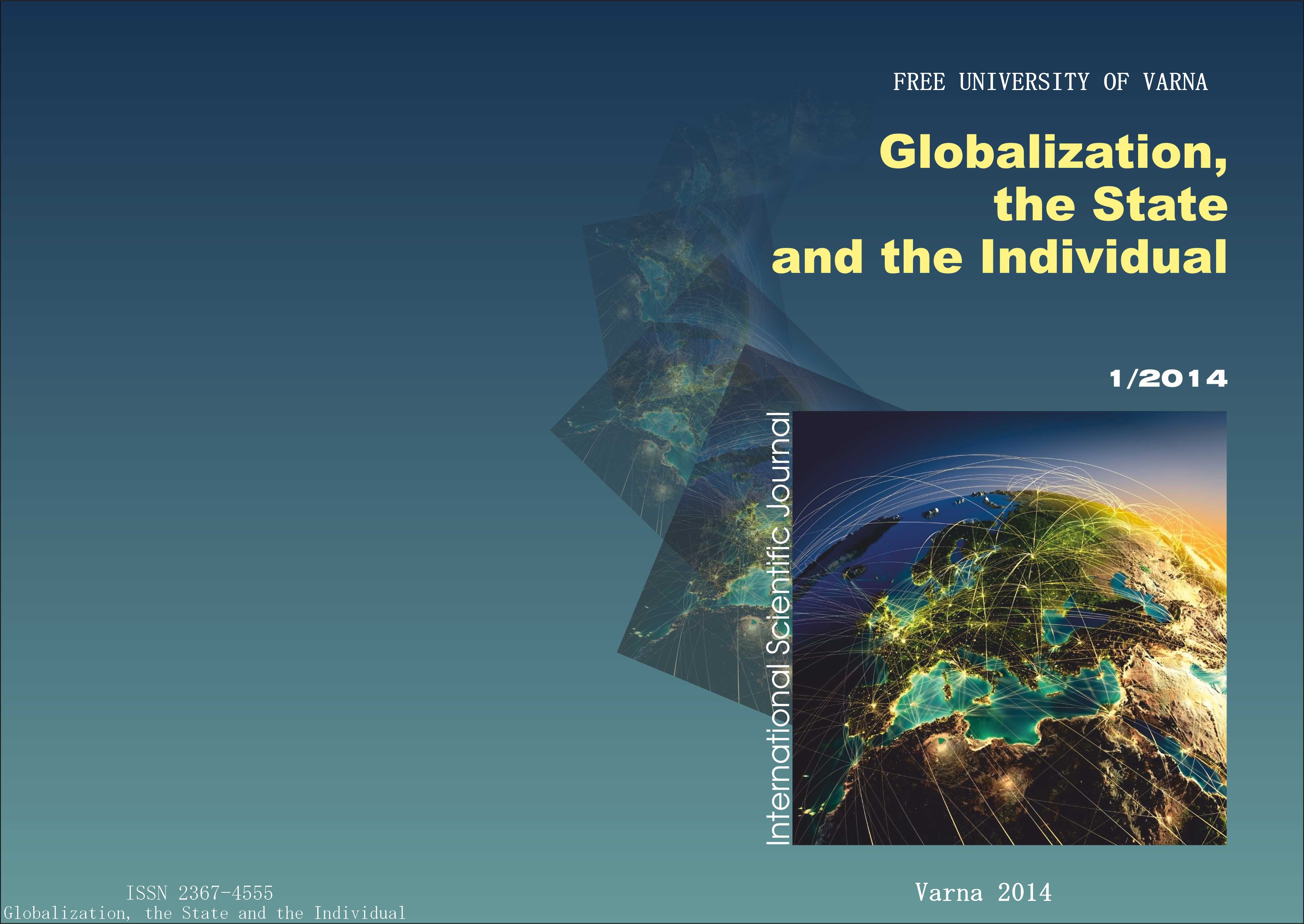
Janusz Soboń, Daniela Palaščáková, Lenka Dubovicka PRO-FAMILY TAX SOLUTIONS IN LAW
Galya Gercheva, Janusz Soboń SELECTED ISSUES OF PROGRESSIVE TAXATION
CLICK HERE TO DOWNLOAD THE REVIEW FORM TEMPLATE
1. The procedure for reviewing articles submitted to the Globalization, the State and the Individual has been based on the recommendations presented in the brochure of the Ministry of Science and Higher Education titled Good Practices for Review Procedures in Research, Warsaw 2011. This paper is used as a guideline for the editorial board, the reviewers and also for those who cooperate with the editors of the Globalization, the State and the Individual, aiming for the highest ethical and moral standards, as well as the reliability of the reviews.
2. All submitted articles which meet the formal requirements outlined in the information for authors section of the website for the Globalization, the State and the Individual are given an identification number.
3. By decision of the Editor in Chief or Vice Editor in Chief, articles are submitted for review to two affiliated reviewers who are outside the parent unit, ie. outside the Silesian University of Technology, according to the double-blind review process, whereby the identity of author(s) and reviewers are not known to one another.
4. Articles are sent to reviewers by email (PDF format). Reviewers prepare a review within 3 weeks from the date which the email was sent.
5. All reviews are prepared in written in English.
6. The reviewer shall issue an opinion about the article and will complete a Review Form, which will end with one of the following statements:
a) The work is suitable for printing without change – the article is submitted to the Editorial Committee and is awaiting publication. The author* is notified of the planned date of publication by e-mail;
b) The work will be suitable for printing after taking into account the remarks contained in the opinion – The Editor sends the review sheet by e-mail to the author for making corrections in accordance with the comments of reviewer/reviewers. Author(s) have 2 weeks to incorporate the corrections and send the revised article by e-mail to the Editor;
c) The work requires complementary or additional research – proceed as above;
d) The work is not suitable for printing – in this case the Editor in Chief or Vice Editor in Chief disqualifies the article or, if the other review is markedly different, forwards it to another (additional) reviewer.
7. The reviewer shall send a review by email to marcincyw@wp.pl. , in an unsecured file doc (docx) or PDF. The file name should include the article identification number assigned by the editors (eg. Review_1-2018.docx). The review may not include a signature or any data that identifies the reviewer.
8. A necessary condition for forwarding the manuscript to be printed is to obtain two positive reviews. The final decision to print the article is taken by the Editor in Chief or Vice Editor in Chief on the basis of the reviews and comments contained in them, and on the final version of the article provided by the author(s).
9. Articles which are not scientific in nature do not require review and are qualified for printing directly by the Editor in Chief or Vice Editor in Chief of the Globalization, the State and the Individual.
10. Rules on acceptance or rejection of the publication and the review form are available to the public on the website of the Globalization, the State and the Individual.
11. The names of reviewers of individual publications/issues are not disclosed. In the last issue of each year, and on the Globalization, the State and the Individual website, a list of the regular reviewers is shown.
* In the event of multiple authors published, all correspondence is between the editor and the author submitting the manuscript.
List of reviewers:
Daniela Palaščáková, PhD, Assistant Professor , The Technical University of Košice, Slovakia
Eleonora Tankova, PhD, Assistant Professor, Varna Free University, Bulgaria
Lenka Dubovicka, PhD, Assistant Professor, UCEU in Skalica, Slovakia
Leonid Leonidovich Rybakovski, Prof. Hab. PhD, Russian Academy of Sciences in Moscow, Russia
Nikolay Nikolayevicz Pierepyenko, Prof. Hab. PhD, Russian Social University in Moscow, Russia
Andrzej Cywran, Prof. Hab. PhD, University of Ekonomics and Innovation in Lublin, Poland
Marian Malicki, Prof. Hab. PhD., Szczecin University, Poland
Gulmira Kudabayeva, PhD, Assistant Professor, LTD Academy of Imageology, Kazakhstan
Yuriy Kariagin, Prof. PhD, Institute of Polish – Ukrainian Cooperation in Kyiev, Ukraine
Jerzy Sikorski, Prof. Hab. PhD, University in Białystok, Poland
Krasimir Nedyalkov, PhD, Assistant Professor, Varna Free University, Bulgaria
Sayran Kabdrahmanovna Suraganova , PhD., Assistant Professor, Eurasian National University named after N.Gumilyev, Kazakhstan
Duties of peer reviewers:
Contribution to editorial decisions
Peer review assists the Editor-in-Chief in making editorial decisions and, through the editorial communication with the author, may also assist the author in improving the manuscript.
Promptness
Any invited referee who feels unqualified to review the research reported in a manuscript or knows that its timely review will be impossible should immediately notify the Editor-in-Chief so that alternative reviewers can be contacted.
Confidentiality
Any manuscripts received for review must be treated as confidential documents. They must not be shown to or discussed with others except if authorized by the Editor-in-Chief.
Standards of objectivity
Reviews should be conducted objectively. Personal criticism of the author is inacceptable. Referees should express their views clearly with appropriate supporting arguments.
Acknowledgement of sources
Reviewers should identify relevant published work that has not been cited by the authors. Any statement that an observation, derivation, or argument had been previously reported should be accompanied by the relevant citation. A reviewer should also call to the Editor's attention any substantial similarity or overlap between the manuscript under consideration and any other published data of which they have personal knowledge.
Disclosure and conflict of interest
Privileged information or ideas obtained through peer review must be kept confidential and not used for personal advantage. Reviewers should not consider evaluating manuscripts in which they have conflicts of interest resulting from competitive, collaborative, or other relationships or connections with any of the authors, companies, or institutions connected to the submission.
Annex to downland:
peer_review_gsijournal.docx
Integrity in research publication has become a major issue of debate over the past years. The editors of Globalization, the State and the Individual are seriously concerned about the increase of plagiarism and other forms of fraud and misconduct in academic publishing.
We consider it an essential part of our ethical responsibilities as editors to be aware of and to meet these challenges and to develop strategies for coping with them. We expect the same awareness of our journal’s peer reviewers.
Likewise, Globalization, the State and the Individual is committed to ethical standards in its own editorial policy. The editors of
Any detected cases of misconduct, whether on the part of authors, reviewers or editors, will be vigorously pursued.
ETHICAL EXPECTATIONS
Editor’s responsibilities
Reviewers’ responsibilities
Authors’ responsibilities
Dealing with unethical behavior
EDITORIAL OFFICE
Varna Free University "Chernorizets Hrabar" Located at
k.k. Chayka, Varna, Bulgaria, 9007,.
E-mail: This email address is being protected from spambots. You need JavaScript enabled to view it.
Phone: +359 52 359 513 Fax: +359 52 357 066, http://www.vfu.bg/en/
SECRETARIAT OFFICE:
This email address is being protected from spambots. You need JavaScript enabled to view it.
This email address is being protected from spambots. You need JavaScript enabled to view it.